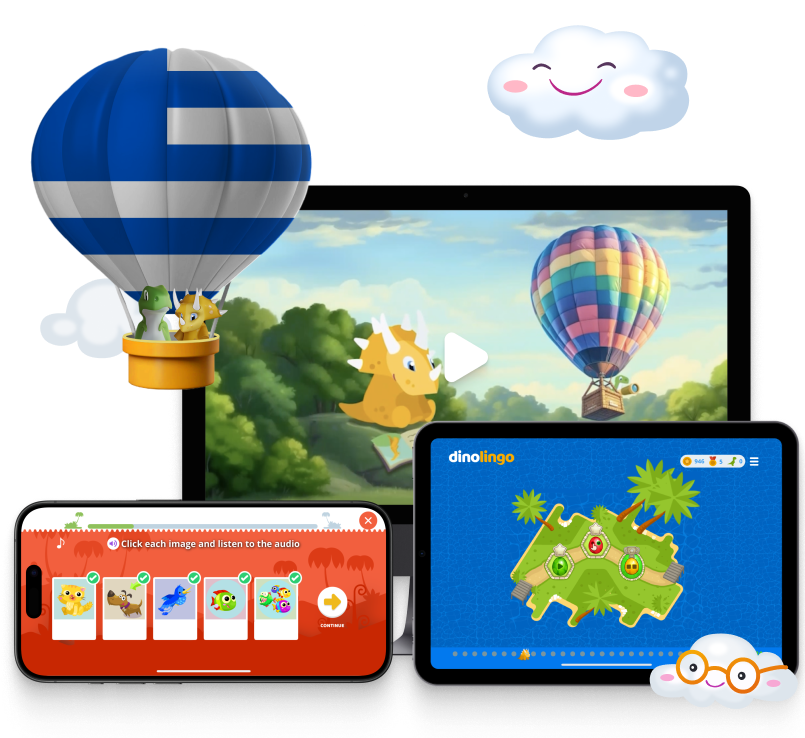10 Easy Ways to Keep Kids Motivated to Learn Greek
How to Motivate Kids to Learn Greek
Learning a new language can be exciting, especially for kids—but keeping them motivated is the real key. The good news is, there are many simple and fun ways to encourage your child to keep learning Greek. Here are some tips to help make learning enjoyable and consistent.
Use Rewards
Small rewards can go a long way. Give your child something special for learning new Greek words or phrases. It could be a sweet treat from Greece, a family meal at a Greek restaurant, or even a trip to their favorite place like a playground or amusement park.
Add Surprises
Surprises work well, especially for younger kids. Try simple games like peekaboo with babies or hide-and-seek with toddlers while counting in Greek. Adding playful surprises helps them stay engaged and enjoy the process.
Keep It Fun
Turn learning into a game. Try board games or outdoor games that include Greek words. Even counting in Greek while playing tag or jumping rope can turn language learning into playtime.
Make It Simple
If something feels too hard, kids can quickly lose interest. Introduce just a few Greek words at a time. This helps build confidence and makes each learning moment feel like a win.
Practice Regularly
Without practice, even the best efforts won’t stick. Find creative ways to use Greek in daily routines. Consistency is more important than length—just a few minutes a day can make a big difference.
Quiz and Test Gently
Even if you don’t speak Greek fluently, you can still ask fun questions like “What is this in Greek?” while pointing at objects. Or show two items and ask which one matches a Greek word. Drawing games also work well—ask your child to draw the word you say in Greek.
Interact with Native Speakers
Give your child the chance to hear and speak Greek in real life. Visit Greek restaurants, community centers, or cultural events. These real-world experiences help children connect language with people and place.
Use Flashcards
Flashcards are a classic tool for a reason. They help build word-object connections over time. You can use ready-made Greek flashcards from Dinolingo or make your own. Just a few minutes of flashcard play each day can be very effective.
Enjoy Songs and Cartoons
Greek songs and cartoons are a great way to introduce rhythm, pronunciation, and vocabulary. The Dinolingo Greek program includes animated videos with songs and fun characters that children love. You can also play Greek music in the background at home or in the car.
Read Children’s Stories
Even if your child is just starting out, try reading storybooks with a mix of Greek and your native language. Replace simple words with Greek words. For children who know a little more, Greek storybooks are a great way to improve vocabulary and grammar naturally.
Dinolingo Makes It Easier
To make Greek learning more fun and structured, let your child explore Dinolingo’s interactive platform. It includes:
-
Engaging Greek videos and songs
-
Online language games
-
Printable flashcards and worksheets
-
Posters and puzzles
-
Offline learning materials
With Dinolingo, children aged 2–14 can learn Greek through play and repetition—right from your home or classroom.
Start Learning a New Language Today!
Best Language App for Kids.
7-day free trial. Then only $19/month. Cancel anytime.

